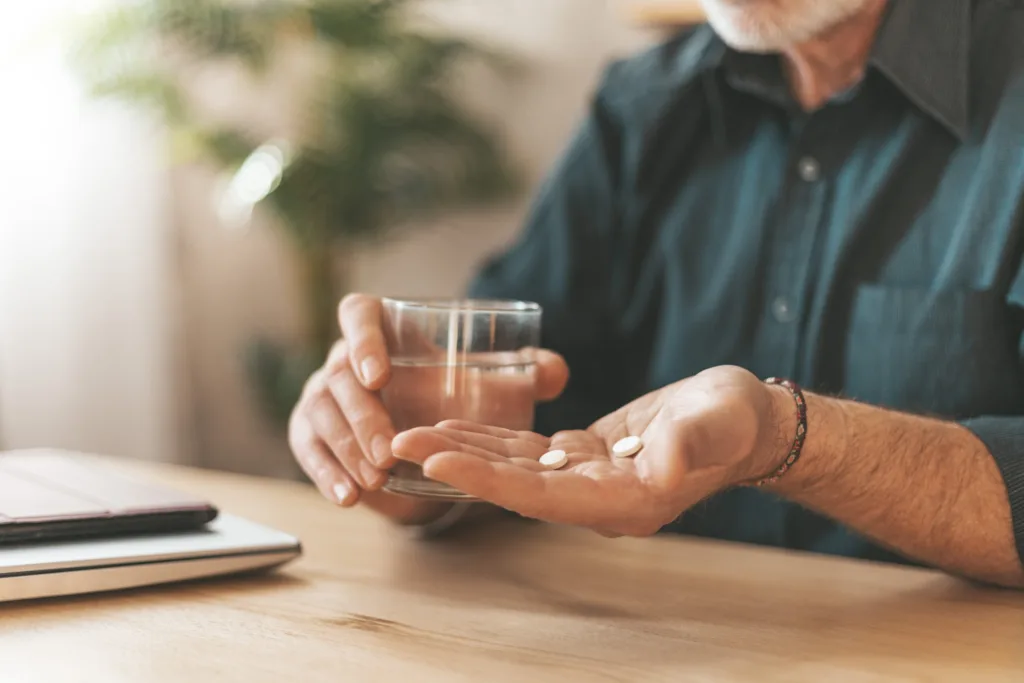
After a night of drinking alcohol, you are likely not feeling your best. Most likely, you feel dehydrated, your stomach is irritated and your overall body feels puffy and bloated. Such an unpleasant feeling can lead us to wonder what we drank that promoted such illness – but the truth is, a combination of factors contribute to bloat after drinking.
Feeling bloated after drinking alcohol?
The feeling of being bloated after drinking alcohol is experienced for a number of reasons, primarily because alcohol is an excellent dehydrator. And when the body is dehydrated, the stomach pulls any possible water from other tissues and stores it in the gut, leading to an incredibly bloated and puffy sensation.
Plus, alcohol causes the stomach to empty more frequently, creating irritation in the intestinal tract. This irritation can cause inflammation, which further increases any sensations of pain and/or discomfort.
Not to mention the fact that the majority of alcoholic beverages, including beer, wine, mixed drinks (particularly those made with carbonated, sugary drinks) contain a high sugar and calorie count. The sugar and carbonation creates gas in the gut, which further increases bloating.
What drinks cause bloating?
Which drinks cause bloating may have a somewhat relative answer, as certain factors determine whether bloat occurs, how long it lasts and how painful it is. But there are certain alcoholic drinks known to have more severe effects on the body.
Beer, due to the high gluten levels and carbonation, is one of the leading culprits for feeling bloated after drinking alcohol. Beer is so widely known to cause inflammation and weight gain, in fact, that the term “beer belly” is used to refer directly to the effects of increased consumption.
Unfortunately for the wine lovers, wine, too, can cause increased bloating with its sugar content – most sweet wines include increased amounts of sugar. The sweeter the wine, the lower the alcohol content, the higher the calories. This can add up quickly and cause bloat to occur, as well as other uncomfortable feelings in the gut.
Additional alcoholic drinks known to be particularly hard on the GI tract include rum, port and sherry.
On the flip side, there are some alcoholic drinks that may be enjoyed with limited negative GI effects if consumed responsibly. These include: dry red wines, light lagers, vodka and gin.
Whether or not one’s body responds to alcohol in this way includes the level of hydration in the body already, the amount of water you drink while drinking alcohol, your diet, age, sex and physical health. For example, some people may be able to drink more beers with limited bloating side effects if they are intaking the daily recommended amount of water.
How can I prevent alcohol bloating?
One of the surest ways to prevent bloating is by limiting the amount of alcohol you consume. The greater the quantity consumed, the more stress is put on the body to metabolize and process the alcohol. Therefore, limiting the amount of alcohol consumed will significantly decrease the potential for bloat and inflammation.
Hydrate
Making sure you are drinking plenty of water will help mitigate the dehydrating effects of alcohol. On average, women should drink approximately 2.7 liters of water a day, and men should consume 3.7 liters. Then, when alcohol consumption is added as a factor, it is even more important to increase the amount of water you are drinking.
The more water is available to your body, the less your gut will need to pull it from other tissues, and the less you will experience bloating as a result.
Exercise
When you feel bloated and “bleh” after a night of drinking, it is even more important to get some exercise. It will help your body rid itself of the toxins faster and will promote reduction of inflammation. Plus, it boosts your metabolism, giving your body the strength it needs to more quickly metabolize the alcohol content.
Watch the snacking
Highly salty foods and alcohol drinking go hand-in-hand culturally (beers and pretzels, wine and charcuterie, etc.), but increased salt works to dehydrate the body and increase inflammation in the gut. In other words, it magnifies the negative effects of alcohol.
If you do feel inclined to go after a snack, consider vegetables and protein, nuts (minimally salted ones) or other low sugar options.
Is alcohol bloating a frequent problem?
It is important, if you are feeling frequently bloated and inflamed after bouts of drinking, to take into consideration the amount of alcohol you are consuming. Alcohol is hard on anyone’s liver and gastrointestinal tract, and if put under frequent stress, will cause long term health problems even more severe than bloating.
Long term alcohol consumption may cause:
- Weakened immune system
- Increased risk of cancer
- Digestive problems
- Heart disease
- Liver disease
- Mental health problems, including increased risk for depression and anxiety
- Alcohol use disorder
In order to prevent both long term and short term effects of alcohol use, it is important to seek help for any potential alcohol misuse behaviors as soon as possible.
Concerned about alcohol habits?
If you feel like you or someone in your life is battling the negative effects of overconsumption of alcohol, help is available. To learn more about programs available, contact High Focus Centers by calling 800-877-3628 or onlineto learn more.
Recent Posts
- Do You Have Hidden Trauma? Here’s How to Recognize It & Heal
- The Connection Between Mental Health and Exercise: How Movement Supports Recovery
- What to Expect in Your First Year of Recovery
- Preparing for Your First Outpatient Behavioral Health Appointment: Guidance for Teens and Adults
- Embrace the Season of Change: Why January Is the Best Time to Prioritize Mental Health and Recovery




